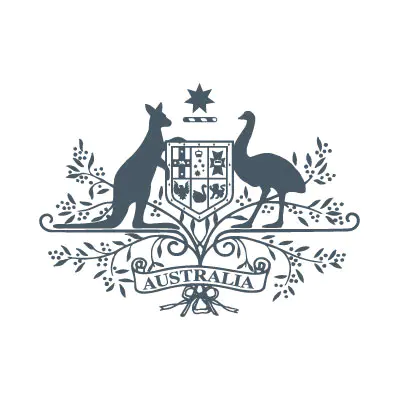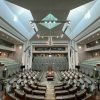
Doorstop – Baringa | Prime Minister of Australia
ANTHONY CHISHOLM, ASSISTANT MINISTER FOR EDUCATION AND REGIONAL DEVELOPMENT: Thanks everyone. It’s great to be with the Prime Minister on the Sunshine Coast. The Prime Minister’s been adamant about being a government for all of Australia and I think we can see the examples of that this week as he’s been across the country. So has the Treasurer, so have all members of his government out there selling the Budget. And this is a Budget for all of Australia but it’s also a Budget that tackles the challenges that we face. And the centrepiece of that has been around our childcare policy which as Opposition Leader, Anthony Albanese has spoken about and delivered on it in government. So I’m pleased to be at the Sunshine Coast in Baringa with the Prime Minister at this fantastic childcare centre today.
ANTHONY ALBANESE, PRIME MINISTER: Thank you very much Anthony, and thank you for the work you’re doing as the Assistant Minister for both Education and Regional Development, both of which are very relevant for us here on the Sunshine Coast at Baringa. I’m very proud of our early learning policy, it was the centrepiece of my first Budget Reply. From Opposition what we did was we put forward significant policy initiatives in each of our budget replies that then fed into our first Budget handed down by Jim Chalmers as Treasurer last week. I do want to thank everyone here at Goodstart Early Learning at Baringa for the warm welcome that we’ve had from the educators, but also from the children here at this centre. Early learning is so important for children. We know that 90 per cent of human brain development occurs in the first 5 years. So those early learning skills, both in terms of education but also socialisation, learning to cooperate, learning to share, all of those skills that will make these young Australians better equipped for the rest of their lives. But investment in childcare isn’t just about assisting the young Australians themselves, it’s also good for our economy. It boosts productivity and it boosts workforce participation. It is economic reform that is absolutely vital. And that’s why we looked at cheaper child care, cheaper medicines, increased support for Paid Parental Leave, increased support for affordable housing, as well as the need to increase wages as a part of our strategy to alleviate the cost of living pressures without putting pressure on inflation. Just as an example here, the Treasury estimates that, as a result of our commitment of $4.7 billion over four years, it will add some 1.4 million hour per week in terms of the work force. Now, that’s equivalent to putting 37,000 additional full time workers into the workforce. And we’re putting them in skilled positions. They’re not new entrance, it’s enabling people to work that extra day or two a week, enabling people to return to the workforce earlier, that then feeds into not just better family incomes in the short term, but also into better retirement incomes for women. Over 280,000 families in Queensland will benefit from our policy that was put in place in the Budget last week. The legislation will make a difference as it travels through the Parliament and will make a difference to our economy going forward, as well as helping families and providing the best start in life for all these young Australians.
JOURNALIST: Prime Minister, just on energy, the Treasurer has said that it’s his intention to have a plan in place before Christmas. Is that something to which you’ll actually make a commitment or is it a wait and see proposition?
PRIME MINISTER: We’re working through these issues with state and territory governments as well with energy suppliers We know that people and businesses need for some of this pressure to be taken off and we’re working through the issues. There will be discussion again next week at our Cabinet and that is what the Treasurer is doing, working with our Energy Minister Chris Bowen, our Resources Minister Madeleine King, our Minister for Industry and Manufacturing Ed Husic, all working to make sure we get an appropriate outcome. We want this to be cooperative. But that should not be read as we are not prepared to take action if the energy suppliers are not prepared to co-operate here. We know that there has been substantial increases in profits at the same time as families and businesses are hurting from the increased charges and that is why we want to work through for a solution as a matter of priority.
JOURNALIST: Prime Minister, obviously we’ve heard a lot about health funding and a lot about what the government is doing for health funding. But just looking forward we see the states wanting 50-50 health funding is going to cost around $20 billion over four years. Given the high costs with 50-50, is it realistic for it ever to be expected to happen?
PRIME MINISTER: When we talk with state and territory leaders at the National Cabinet process, what we have actually discussed is how we make health funding and the whole health system be more efficient. We know, for example, that a whole lot of beds in ED are taken up by people who should be getting that support in aged care. Our 24/7 nurses policy is about older Australians getting that help and support where they need rather than having to go to the hospital to get that support.
JOURNALIST: I understand all that, but is 50/50 ever going to be realistic?
PRIME MINISTER: I am giving you the answer. The answer is we are not focused on a shuffle of funding.
JOURNALIST: It’s what all the states want, though?
PRIME MINISTER: You’ll ask a question and then I’ll answer it, is the way we’ll do the process.
JOURNALIST: Is 50-50 ever realistically ever going to be funded?
PRIME MINISTER: What we have said after the National Cabinet Process is what our actual priorities are. I know it is a focus of some in the media, but it has not been a focus at National Cabinet. What the focus has been is taking pressure of the healthcare system, including the funding of Urgent Care Clinics which is about the Commonwealth stepping up to provide support. They are Medicare-based, the only support you will need there is your Medicare card, not your credit card. That is about taking pressure off the hospital system. I know hospital systems are under pressure right around the country. What we want to do is work for solutions. Working for solutions that mean that there is less cost but better outcome in the system is what our priority is.
JOURNALIST: Prime Minister, are the next group of women and children from Syria going to settle in Victoria and will you make that clear either way before the Victorian election?
PRIME MINISTER: People have gone to where they are from, that is what has occurred here. That has been something that has been worked through with the states and it has been worked through on the basis of the national security advice. We will keep acting on the national security advice. Our priority is to keep Australians safe.
JOURNALIST: Prime Minister, are you concerned about some of the allegations that have come out about the Mackay Base Hospital and do think this show clause notice will be enough to restore confidence for mothers?
PRIME MINISTER: These allegations are serious allegations and they are of concern. I certainly understand people’s concerns. There has been action with this show cause notice and I hope there is a successful resolution of these issues.
JOURNALIST: You’ve spoken of wanting to speak to the gas companies and coming up with a compromise on lowering gas prices. On the other hand you have the industrial relations bill that has been quite contentious and multi-employer bargaining, and the gas industry are arcing up on that as well. In having this to negotiations play out at the same time, which one of those will ultimately have to fall away, or can you do both at the same time?
PRIME MINISTER: There is no link between the two things. But I do note that there is an issue of credibility if companies are saying we have a whole lot of money to throw at a campaign but we don’t have any money to pay workers better.
JOURNALIST: You mentioned Ed Husic and Madeleine King earlier. One has been very outspoken targeting the gas companies, Minister King’s been somewhat more circumspect saying responsibility is spread over a wider area of suppliers. Which view do you take?
PRIME MINISTER: We have one position as a Government and our position is that we need to fix supply, which we’ve actioned to do that, and we achieved that with heads of agreement signed by the major gas companies. The outstanding issue is that of price and the Government is working that through in a coherent way.
JOURNALIST: Are cash handouts to ease the cost of living now back on the table? Because the Treasurer wouldn’t rule it out last night.
PRIME MINISTER: The issue that we have prioritised is measures that provide cost of living relief without putting pressure on inflation. That is one of the reasons why the largest on-budget commitment we made last Tuesday in the Budget was for early learning support.
JOURNALIST: Prime Minister, one cyber-crime is reported every seven minutes or so. Are we losing the fight against cyber criminals?
PRIME MINISTER: We know cyber security is important. It is more important today than it was a year ago. A year ago, it was more important than it was two years ago and next year it will be more important than is today. Cyber criminals are targeting, on a global basis, these issues. That is why we have supported, very strongly, the increased funding for the Australian Signals Directorate. The ASD do an extraordinary job. I have every faith in them. It is also up to companies to heed the wake-up call that some have received in recent times about the targeting of people’s data, about the need to keep that data secure, just as individuals can be targeted as well. There is a whole range of things that you can do. Turning off your phone, for example, every day for a period of time helps make your device that you have your data on more secure. There are some simple things you can do as individuals but companies need to be vigilant about the fact that this targeting does occur, there are criminal organisations that are globally based. We also have state actors involved in cyber security issues which is why the Government takes it seriously.
JOURNALIST: Are the agencies any closer to identifying the Optus hackers?
PRIME MINISTER: One of the things about national security in these things is that we allow national security agencies to make those announcements not in a political way. They are undertaking their work and when they have something that is appropriate to be announced, it will be.
JOURNALIST: Prime Minister, is the consensus to which you aspired pretty openly with the Jobs Summit enough do you think to convince these three Senators to give the Government’s IR strategy a favourable consideration?
PRIME MINISTER: I certainly hope that the Senators give proper consideration to the legislation. Of course, I respect their right to determine their own voting patterns. But the Government has worked through these issues. No-one can say that before the election we did not outline very clearly that the Government intended to reform industrial relations and to do it in a way that lifted wages. It has been a priority of the Government. Indeed, one of the first things that we did in government was to put in a submission to the Fair Work Commission saying that those people on the minimum weight should not go backwards and we were very pleased that the Fair Work Commission granted a 5.2 per cent increase. What we know is that, in terms of the economy and growth, a higher share has gone to towards profits than what has gone to wages in recent years. The former government had a policy of deliberately holding back wages. They said it was a key feature of the economic architecture. The Government that I lead wants to see wages lifted, wants to see living standards improved. And the legislation that has been put forward, we are continuing to work through with business, with unions, with Senators, continuing to have discussions. I know Tony Burke has held meeting after meeting after meeting this week and will continue to work those issues through. The legislation, I expect, will pass the House of Representatives in the coming period. And then it will be up to the Senate. But we believe there is a clear mandate for change here. We argued very clearly and explicitly before the election that we needed to do changes that would lift wages.
JOURNALIST: They Government has kept $1.6 billion in the budget for a rail line into Maroochydore but at the moment a quarter of that isn’t being spent until 2032, the year of the Olympics. Are you worried this rail line won’t be ready in time for athletes and spectators to be travelling to venues and the athletes village?
PRIME MINISTER: What we’ve got, if you look at the forward estimates in terms of projects going forward, the coming period is important. But we know as well that there has been nationally some delays in infrastructure rollout because of the shortages of labour and shortages of some of the inputs as well, it has caused some issues around the country.
JOURNALIST: In terms of that, are there some projects that can’t be held back because of the importance of the 2032 Olympics?
PRIME MINISTER: The 2032 Olympics is an absolute priority. I’m looking forward to it. I’ll be having a chat with Premier Palaszczuk today and again tomorrow. We have Anika Wells as our Sports Minister. Not by accident, a great Queenslander. Anika Wells and Graham Perrett both participating in the Olympics board. That is important, two great Queenslander ‘s. This is a vital event for Australia. I saw firsthand the way that the Sydney Olympics helped to transform Sydney. I think the Olympics in Brisbane and in South East Queensland and on the Sunshine Coast and in regional venues in Queensland will be transformative for Queensland. What we need to do is to look for projects, as well, that will provide that long-term benefit. I am very confident that that will occur. Cross River Rail will be pretty important for getting people to The Gabba, it must be said. That was a project that was delayed because of the election of Campbell Newman and the election of Tony Abbott. It would have been open and up and running now and there would be more investment therefore available for other projects.
JOURNALIST: Just on the 1.6 billion for Sunshine Coast Rail, is the government actually putting in more money for that or is that $1.6 billion old money from the former government?
PRIME MINISTER: We are the government. There is a new government. So all of the funding that is available is funding from the government.
JOURNALIST: Is it money that was already implemented by the Morrison government or is there separate, more money that you’re putting in?
PRIME MINISTER: It is all money from the Federal Government. The Morrison government have gone. I’ll give you big tip, they left on the 21 May and you can tell that is the case because Australians are getting on with the job and the days of looking for division are over. We’re looking for unity, we are looking for advancing the interests of the nation and that is how you can tell there is a change in government.
JOURNALIST: The head of the Cybersecurity Centre says that a lot of companies still have critical vulnerabilities in their software. How concerning is this?
PRIME MINISTER: It is a huge wake-up call and companies need to get their act together. That’s what the Australian Signals Directorate and our other cybersecurity agencies are saying. They need to get their act together. It has been a big wake-up call with a couple of the failings which have been out there. We need to do much better. The government has stepped up, private sector needs to step up in the interests of their customers but also in their own interests as well. Because if there is a cyber-attack it undermines confidence in their business. So I would say to the business community, make sure that you engage in best practice. The agencies are available to give you that advice and you should follow the advice that you are given.

